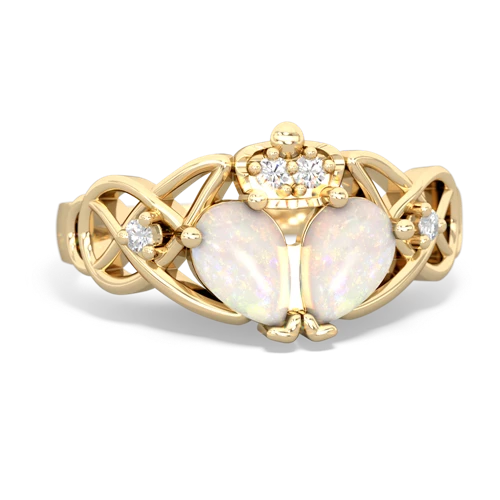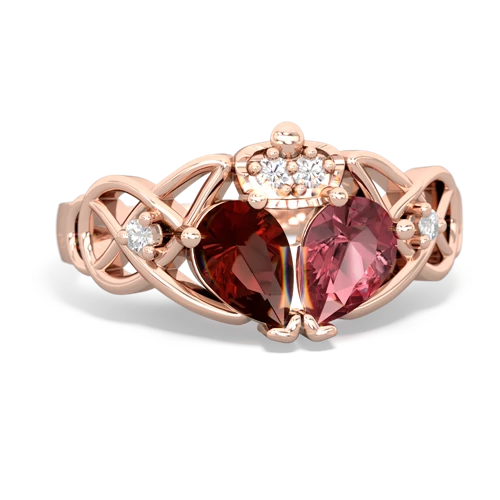
- 6 x 4 mm Pear
- 0.40 carats
- AA Quality
- eye-clean
- Origin: Brazil

- 6 x 4 mm Pear
- 0.40 carats
- AA Quality
- eye-clean
- Origin: Africa
Claddagh, celtic, and keepsake are all combined in this exclusive ring. Shown here with deep pink pink tourmaline and amethyst, but available in any two gemstones below. Create one big, beautiful heart with the birthstones of your loved ones. Pink Tourmaline is known as the gem of empathy and creativity and is the birthstone for the month of October. Amethyst is known as the gem of peace and tranquility and is the birthstone for the month of February.



I recently wrote to Jewels for Me to Thank them so much for repairing my ring. The ring is very important to me as it is my twin granddaughters birth stones. Claddagh style the two stones form the heart. The ring is beautiful and I was heartbroken when it was broken. Jewels for Me not only honored their warranty and fixed the ring for free but had it back to me in less than a week! Incredible! I will certainly be purchasing more beautiful jewelry from them in the future!
Tammy B.
Essex, CT
Monday, October 1, 2018

I received my keepsake today. A masterpiece! The quality of workmanship is amazing. Thank you for taking such care! There is a level of comfort I experience wearing this ring. I am in the process of creating other keepsakes. You have proven yourself trustworthy! When my husband see this he will agree! Thank you so much! Much love! Peace and God bless!
Kari K.
Victor, IA
Tuesday, July 11, 2017